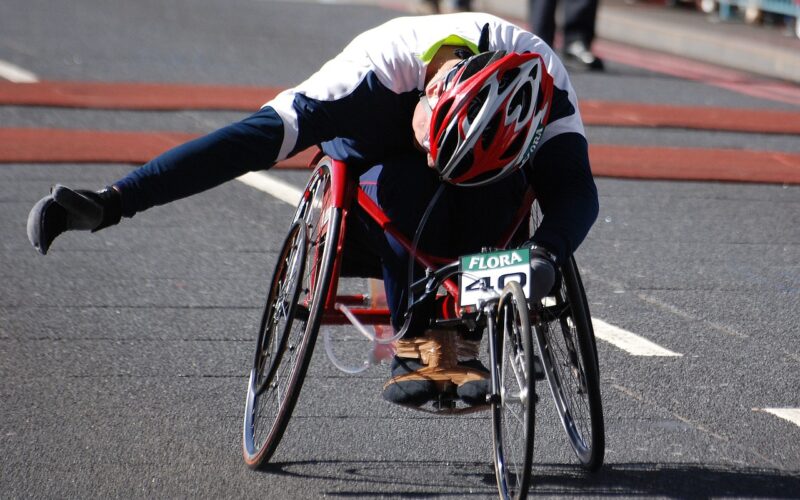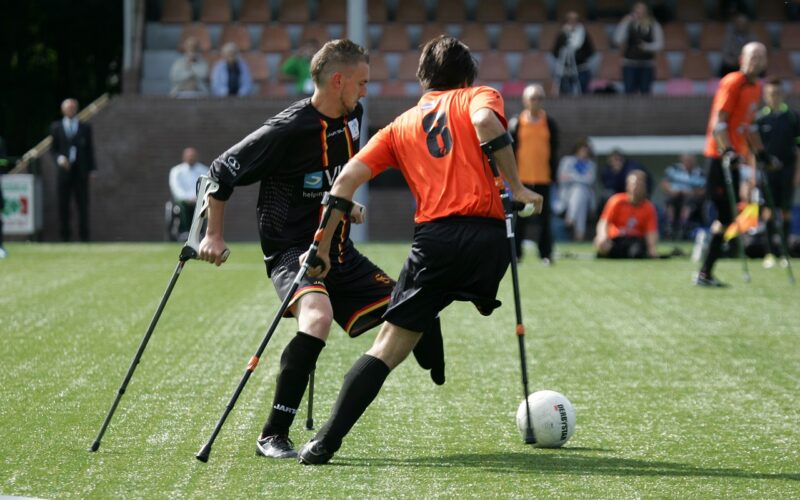Participation in sports is a fundamental human right and plays a vital role in the lives of many people, including those with disabilities. Adaptations and innovations in sporting equipment and rules have made it possible for wheelchair users to enjoy a variety of sports, both recreationally and competitively.
Wheelchair basketball
Wheelchair basketball is one of the most well-known wheelchair sports, following similar rules as stand-up basketball with necessary modifications for wheelchair usage. It is a fast-paced game that improves cardiovascular health, strengthens muscles, and offers a dynamic team environment. Wheelchair basketball has grown to be an internationally recognised sport, featured in the Paralympic Games and boasting leagues worldwide.
Wheelchair tennis
Tennis is a beloved sport that has been successfully adapted for wheelchair users. Wheelchair tennis follows traditional rules with one major difference – the ball is allowed to bounce twice before a return. This sport has gained popularity due to its combination of physical challenge and strategic play. Like its stand-up counterpart, it can be played in singles or doubles, and its athletes are lauded for their skill and endurance.
Wheelchair racing
Athletics in the form of wheelchair racing brings the thrill of speed and competition to the track and road. Races range from sprints to long-distance events and even marathons. Wheelchair racers use specially designed chairs that are lightweight and aerodynamic, allowing for optimal performance. This sport not only provides an adrenaline rush but also promotes healthy living through intense physical activity.
Wheelchair rugby
One of the more rough-and-tumble sports is wheelchair rugby, also known as 'Murderball' because of its intense physical nature. It is a mixed-gender sport that combines elements from basketball, handball, and ice hockey. Wheelchair rugby was designed for athletes with quadriplegia, and it is recognised for its aggressive style and the incredible athleticism required to manoeuvre and pass the ball while fending off opponents.
Adaptive rowing
Rowing has been adapted into an inclusive sport that allows individuals who use wheelchairs to participate in single, double, or team events on the water. Adaptive rowing utilises special equipment such as fixed seats and stabilising pontoons to make the sport accessible. It provides a full-body workout and a unique way for athletes to connect with nature and fellow rowers.
Wheelchair fencing
Wheelchair fencing is an adaptation of the classic fencing sport, requiring the same high level of precision, agility, and tactical thinking. Athletes compete using foils, epées, or sabres, with modifications that include securing the wheelchair to the floor to ensure stability. This sport challenges the mind and body, creating an exhilarating competitive experience.
Sledge hockey
For those who love the chill and excitement of ice sports, sledge hockey presents an ideal option. Players sit in specially designed sledges with two hockey skate blades underneath and use two sticks to propel themselves and shoot the puck. Sledge hockey is as competitive and fast as traditional ice hockey, providing a vibrant team environment and a cool way for athletes to demonstrate their abilities.
Boccia
Boccia is a precision ball sport similar to bowls or pétanque and is specifically designed for athletes with severe physical disabilities. It is played indoors with soft leather balls, with the objective to throw or roll them as close as possible to a target ball, the "jack". It is not only a sport of strategy and skill but also a fantastic social activity that encourages interaction and friendly competition.
Wheelchair sports offer a dynamic and inclusive arena where barriers are broken and the focus is on ability and athleticism. These sports foster a strong sense of community, self-confidence, and independence among participants. Wheelchair users who engage in sports can not only improve their physical fitness but also enjoy the multitude of psychological benefits that come with competition and teamwork. The sports highlighted above are just a few examples of how the spirit of athleticism thrives within the wheelchair sports community, proving that sports truly are for everyone.























